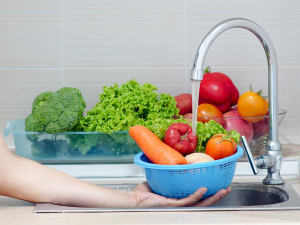It's all about economics
OPINION: According to media reports, the eye-watering price of butter has prompted Finance Minister Nicola Willis to ask for a 'please explain' from her former employer Fonterra.
 Countdown claims higher supplier costs are responsible for an increase in the cost of food at the checkout.
Countdown claims higher supplier costs are responsible for an increase in the cost of food at the checkout.
Countdown says cost increases requested by suppliers averaged 8%, in line with the Food Price Index for August.
The Food Price Index for August 2022 increased by 8.4%, according to Stats NZ, the largest annual increase since July 2009.
Grocery food was the largest contributor to the movement, increasing by 8.7%.
“Increasing prices for eggs, yoghurt, and cheddar cheese were the largest drivers within grocery food,” says Stats NZ consumer prices manager Katrina Dewbery.
Vegetable prices also had a sizeable impact on the monthly rise, with tomatoes, capsicums, and cabbage among the largest contributors, Dewbery says.
Countdown says it received four times the number of cost increase requests from its suppliers last month compared to August 2021.
Requests ranged from a 1% increase to a 72% increase.
Countdown commercial director, Steve Mills says that New Zealand isn’t alone in the increases, with the United Kingdom experiencing a 14-year high food inflation of 12.6% in July, and the United States seeing food inflation reach 10.9%.
“We pay our growers and farmers market prices for meat, dairy, fruit and vegetables, so higher international and local prices are reflected in what customers are paying for their food at the checkout,” Mills says.
“Compounding this, a large portion of the products Kiwis rely on are imported from overseas, such as bananas, flour, pasta and toiletries. Inflation on imported products is roughly double that of local products,” he says.
“We understand the genuine cost pressures suppliers are under, whether that’s input costs like grain, fertiliser and freight, or domestic factors such as labour shortages and increased wage rates.
“However, we also know that our customers are facing higher cost of living pressures from all parts of the economy, not just groceries. Our job remains focused on balancing all the different pressures and costs we are experiencing to provide the best value we can.”
Voting has started for the renewal of DairyNZ's milksolids levy.
The most successful catchment groups in NZ are those that have 'a source to sea' approach.
Associate Agriculture Minister and Manawatu dairy farmer Andrew Hoggard says the free trade agreement (FTA) negotiated with India is not a bad deal and his party, Act, will support it when it goes before Parliament.
Newly released data from Environment Canterbury (ECan) Farm Environment Plan (FEP) audits are showing a dramatic lift in environmental performance across the region.
A solid recovery of global dairy prices this year makes a $9.50/kgMS milk price almost a shoo-in for this season.
As New Zealand marks the United Nations’ International Year of the Woman Farmer 2026 (IYWF 2026), industry leaders are challenging the misconception that women only support farming.